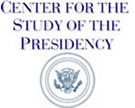The prisoners to be released, five initially, and then, 47 others, were all detained during a major crackdown on dissent in 2003, when the government of President Fidel Castro rounded up 75 activists and journalists who were accused of acting as “mercenaries” on behalf of the United States.
Of the original 75 detainees, some completed their sentences or were released on health grounds. Those who remained behind bars turned into potent symbols to Cuba’s critics of the government’s heavy-handed approach to dissent.
The announcement of the decision to release the prisoners came in a statement from Orlando Marquez, the spokesman for Cardinal Ortega.
The five prisoners to be released first, whose identities were not made public, were to be flown to Spain with their families. The others to be set free will be repatriated, church officials said. “This process will be concluded in three to four months from now,” the church statement said.
Although the United States did not play a role in the negotiations over the release, some analysts said the accord might help improve relations between Cuba and the United States.
Wayne S. Smith, a former American diplomat in Havana who favors an end to the American embargo of Cuba, said the prisoner release should prompt the Obama administration to “do something to encourage the trend.”
Mr. Moratinos, the Spanish foreign minister, had arrived in Havana this week in a bid to save the life of Guillermo Fariñas, 48, a psychologist and journalist who has been on a hunger strike since Feb. 24.
A previous hunger striker, Orlando Zapata Tamayo, died earlier in February, delivering an embarrassing blow to the Cuban government. He had been a political prisoner and had stopped eating for 85 days to protest prison conditions.
Mr. Fariñas, who began his hunger strike to protest Mr. Zapata’s death and to call for the release of inmates who are ill, was too weak to talk to reporters on Wednesday, his sister told Reuters. He told The Associated Press though that he might continue forgoing food and water.
His mother, Alicia Fernandez, was clearly hopeful that he would start eating again. “I feel like I’m born again,” Reuters reported that she had said.
Mr. Fariñas left little doubt before the announcement on Wednesday that he was ready to die.
“I want to die in my country right under the noses of the dictators who have the guns, rifles, cannons and bombs,” he wrote on an opposition blog. “I have the moral weight of the people from below, who have been deceived and repressed for 51 years by those who have the weapons, the violence and totalitarian laws they use to govern poorly from above.”
It was clear that the government was closely following Mr. Fariñas’s protest. Granma, the Communist Party newspaper, published an article that quoted his doctor as saying that he was “in danger of potential death.” The paper, however, failed to describe the subject of Mr. Fariñas’s protest.
The Roman Catholic Church in Cuba has played an increasing role in recent months in trying to moderate the government. Cardinal Ortega recently helped prod the authorities to lift a ban on marches staged by the Ladies in White, a group of wives and mothers of political prisoners. Church leaders also helped persuade the government to move some prisoners to jails closer to their families.
“Ortega is slowly widening the political space for the church,” said Robert Pastor, a professor at American University who met the cardinal while helping to arrange a trip to Havana by former President Jimmy Carter in 2002.
Even as the Cuban authorities were reducing their prison population on Wednesday, a new inmate was flown into the country. Venezuela extradited to Havana a man accused of participating in the bombing of a hotel disco in Havana in 1997.
Cuban officials say that the suspect, Francisco Chávez Abarca, who was arrested at the airport outside Caracas last week, was a close associate of Luis Posada Carriles, a former C.I.A. operative who lives in South Florida and is wanted in connection with the bombing of a Cuban plane in 1976 that killed 73 people.






